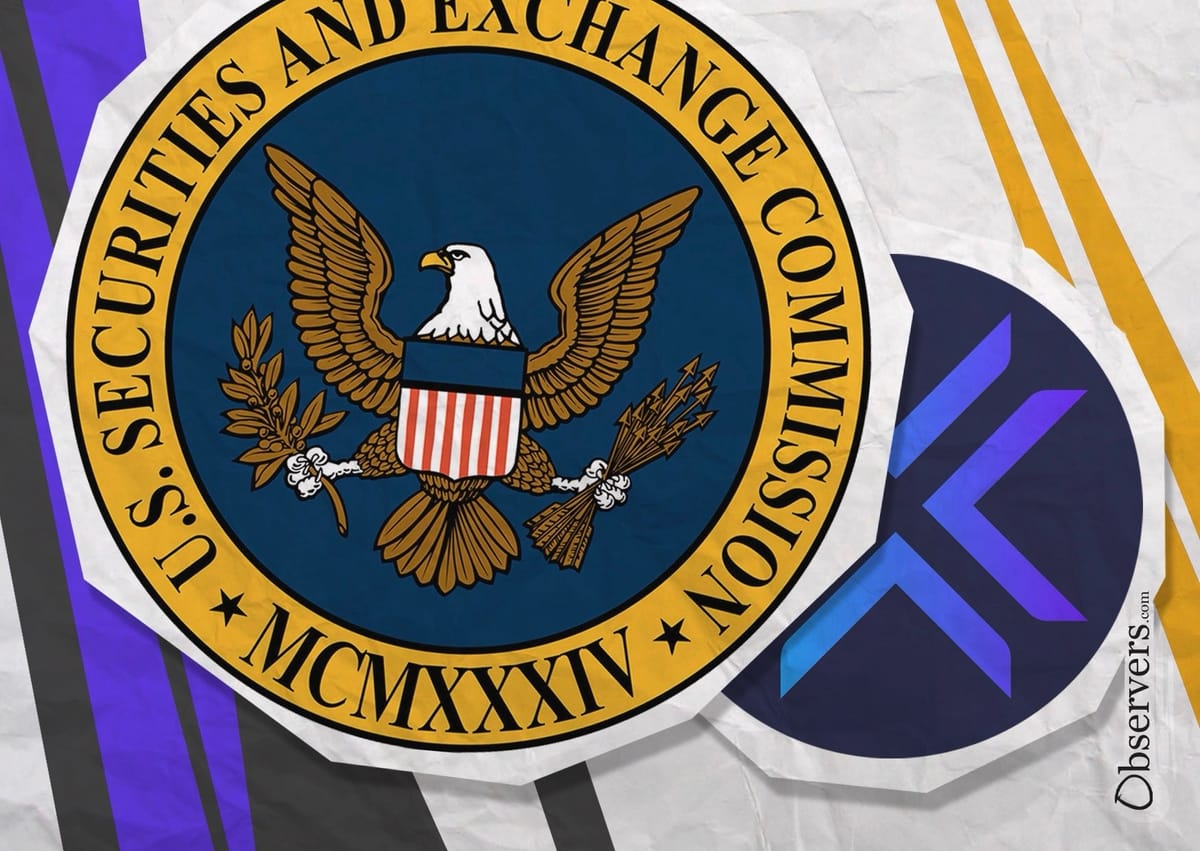
Cryptocurrency wallet provider Exodus Movement faced an unexpected setback in its attempt to go public. The company's planned exchange listing on the NYSE American, originally scheduled for May 9, was halted due to a further review of Exodus's registration statement by the U.S. Securities and Exchange Commission (SEC).
According to the press release from Exodus, the NYSE American had already approved listing Exodus's Class A common stock. On May 8, the exchange informed Exodus that trading would be delayed until the SEC completed its review process. Exodus filed its registration statement with the SEC on February 28 of this year, and it became effective on April 28, indicating that the SEC completed its review and the company was authorized to proceed with offering its securities from that date. For Exodus, it seemed everything was in order, and the listing was about to go ahead.
Richardson declared that while Exodus is "surprised and confused by this last-minute decision," they remain "hopeful that the SEC will follow through on its commitment to treat us as the law intends." Richardson emphasized Exodus's transparency and responsiveness throughout the SEC review process and expressed their expectation for a "swift resolution" to the matter.
In a post on X (formally Twitter), CEO JP Richardson further shared his frustration. "We flew hundreds of employees and families into NYC to celebrate this moment...at the 11th hour, the rules of the game were changed." But, Richardson is "hopeful the SEC will act in good faith" and will resolve the situation in a "timely" manner.
Yesterday, the SEC prevented the listing of EXOD on the NYSE American.
— JP (Exodus) (@jprichardson) May 9, 2024
We’ve been working with NYSE on this listing for years, and were given prior approval formally by the NYSE to list today.
We flew hundreds of employees and families into NYC to celebrate this moment.
Every…
In the meantime, Exodus's stock will continue trading on the OTC Markets' OTCQX exchange under the symbol "EXOD." The firm said it might reconsider listing on a national securities exchange at a later date.
Exodus' situation is not novel. Several high-profile crypto companies have encountered similar issues when trying to list their initial public offering (IPO).
Robinhood had to navigate significant SEC scrutiny before its IPO on July 29, 2021. Given its integration with cryptocurrency trading, Robinhood had to ensure stringent compliance with both securities and cryptocurrency regulations, affecting its market entry timing. Coinbase also faced its own set of challenges but successfully listed on Nasdaq on April 14, 2021.
Ripple, led by CEO Brad Garlinghouse, has been embroiled in a legal battle with the SEC over whether its XRP tokens should be classified as securities. This dispute has significantly impacted Ripple's potential for an IPO. Garlinghouse has expressed frustration over the regulatory environment and told CNBC in 2022, "In the United States, trying to go public with a very hostile regulator that's approved your S-1, that doesn't sound like a lot of fun to me."
Founded in 2015 by Daniel Castagnoli and JP Richardson, Exodus is a self-custody cryptocurrency wallet it says is designed with user experience in mind. Its intuitive interface caters to beginners while offering advanced features like staking and DeFi app integration for experienced users. Exodus supports a wide range of cryptocurrencies and allows users to manage NFTs and interact with Web3 applications directly within the platform.
In April 2021, Exodus initiated an innovative approach to IPO listing and fundraising by issuing tokenized Class A common stock directly within its wallet software, with approval by the SEC under Regulation A. This allowed both accredited and non-accredited investors to buy tokenized shares on the Algorand blockchain. Exodus successfully raised $75 million (the maximum amount authorized under the regulation) in less than a month after the listing.

